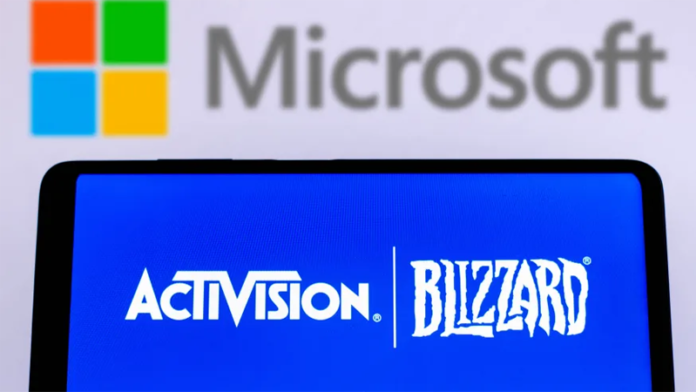[ad_1]
The proposed merger between Microsoft and Activision Blizzard has sparked a heated debate, with Microsoft asserting that almost all of PlayStation house owners don’t play Name of Responsibility. This declare, nonetheless, is being contested by the Federal Commerce Fee (FTC), which insists it has proof on the contrary as reported by CharlieIntel .
As Microsoft continues its quest to secure approval for the Activision Blizzard merger, the tech big has discovered itself embroiled in a authorized dispute with the FTC. The crux of the argument lies in courtroom paperwork, just lately made public, the place Microsoft contends that Name of Responsibility isn’t a major draw for many PlayStation customers. The FTC, nonetheless, has countered this declare, citing undisclosed proof that means in any other case.
Credit score: Microsoft / Activision Blizzard
Apparently, the FTC has additionally identified that Activision has hinted (in redacted feedback) that their video games could possibly be launched on cloud platforms with out the necessity for Microsoft’s possession. This assertion additional complicates the continuing negotiations and raises questions in regards to the necessity of the merger.
The FTC’s latest submitting additionally brings up the problem of recreation exclusivity, citing the circumstances of Starfield and Redfall, which grew to become Xbox exclusives following Microsoft’s acquisition of Bethesda in 2021. The FTC suggests {that a} comparable destiny may befall Activision Blizzard video games if the merger is accredited .
Microsoft’s makes an attempt to assuage these issues, reminiscent of proposing long-term offers with numerous studios and even suggesting bringing Call of Duty games to Nintendo, haven’t satisfied the FTC. The regulatory physique has dismissed Microsoft’s 10-year agreements as irrelevant, arguing that these offers, primarily signed in international international locations, don’t adequately tackle issues within the US market. The FTC further criticizes these agreements as having “loopholes” and being “facially ambiguous,” presenting important questions on their effectiveness.
Whereas Microsoft continues to push for approval within the US, it additionally faces hurdles within the UK, the place the Competitors and Markets Authority (CMA) blocked the acquisition in April as a consequence of issues about Xbox’s potential dominance within the cloud gaming market. Microsoft is at the moment interesting this resolution.
In conclusion, the FTC argues that if Microsoft’s declare that Activision would function individually post-acquisition is true, then not shifting ahead with the deal wouldn’t trigger important hurt to Microsoft. This assertion underscores the FTC’s skepticism in regards to the merger and its potential influence on the gaming trade.
[ad_2]
Source link






